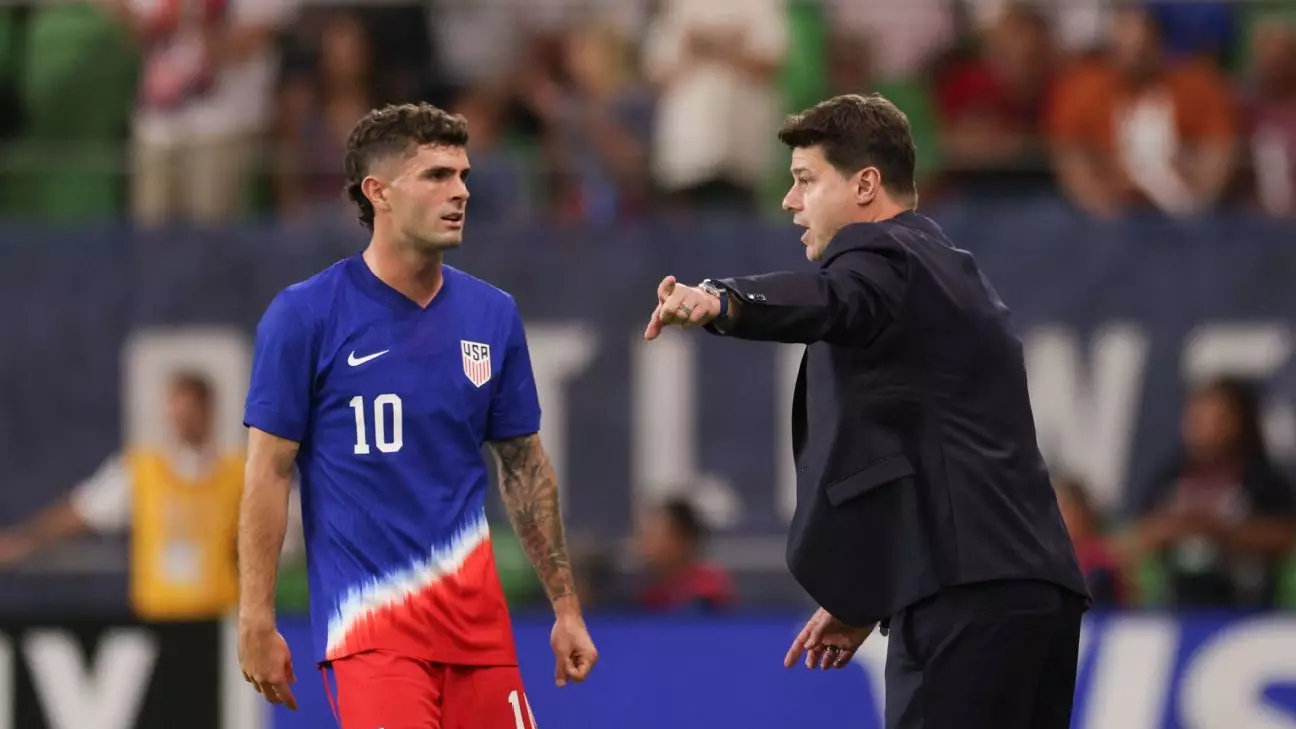The United States men’s national soccer team is poised for an intriguing encounter against Mexico in Guadalajara, marking a significant opportunity for new talent. Head coach Mauricio Pochettino recently opened the door for fresh faces following the departure of five players due to injuries and fatigue. Among those who exited the camp after a recent 2-0 victory over Panama were Marlon Fossey, Zack Steffen, Weston McKennie, Ricardo Pepi, and Christian Pulisic, who chose to return to AC Milan to manage his workload. This situation presents Pochettino with a critical juncture to evaluate lesser-used players before the next international fixtures in November.
“It’s really important for the players because I think we all want to have the opportunity to play, to show quality,” stated Pochettino, conveying the weight of responsibility that now falls on the remaining players as they prepare to face a storied rival. This friendly match serves as both a testing ground and a platform for players who have yet to solidify their places in the squad. The absence of several key players, while unfortunate, may prove beneficial by allowing emerging talents to stake their claim.
The match against El Tri not only serves as an opportunity for player evaluation but also as a lesson in resilience and adaptability within challenging circumstances. This will be the first time in over a decade that the U.S. plays Mexico on their turf, and the significance of this encounter extends beyond mere rivalry. It represents an opportunity for the team to experience the pressures of competing in a hostile environment, which is invaluable as they gear up for the 2026 World Cup.
Pochettino recognizes that “for us it’s another game to learn,” emphasizing the need for the team to grow collectively through adversity. The opportunity to face a formidable opponent in Mexico, under pressure, will elevate the players’ experiences as they navigate through competitive football’s complexities. This kind of atmosphere is crucial for developing the mental fortitude necessary for future tournaments—a perspective the coaching staff is keen to instill in the squad.
Despite Pochettino’s desire to foster growth, he remains acutely aware of the challenge that lies ahead. He praised Mexico’s head coach, Javier Aguirre, for having a competitive edge and highlighted the synergy within Aguirre’s squad, referring to them as “a magnificent team.” Such compliments underscore the respect that exists between coaches and the reality of the task facing the U.S. team. With a balanced blend of skill and tactical awareness, Mexico poses a formidable test for any opponent.
“Of course it’s going to be tough,” Pochettino acknowledged, preparing his players for what will likely be a challenging fixture. The key lies in not just surviving the encounter but finding ways to thrive. As the players step onto the field, they not only play for their individual futures but also for the pride of representing their nation.
After facing Mexico, the focus will shift to the upcoming Concacaf Nations League quarterfinals, where the U.S. will encounter yet another challenger. This time spent against Mexico gives the coaching staff the chance to assess players in high-pressure conditions, which is crucial for game strategy moving forward. The lessons learned will undoubtedly influence preparations for subsequent matches.
In the end, while the loss of several players is disheartening, it simultaneously invites new talent into the fold—an opportunity Pochettino intends to capitalize on. Each player has a chance to demonstrate their abilities and potentially secure their place in a future roster. As the U.S. men’s national team looks to the future, the journey begins with navigating these critical matches. With every challenge comes growth, and as they adapt to these adversities, the hope remains that they emerge as a stronger, more cohesive unit—ready to make their mark on the international stage.

